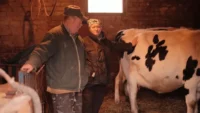
The digital euro: a solution seeking a problem?
When more than 1,000 demonstrators marched through the streets of Amsterdam in early February, they directed their ire at something that does not even exist: the digital euro.
The protesters voiced a kaleidoscopic array of objections to the European Central Bank’s plan to issue an electronic version of the continent’s single currency. Some feared the state would use it to track and control their spending, while others suspected a plot to replace cash. One protester told Dutch media she feared the authorities would stop her buying meat or alcohol.
Willem Engel, the event’s organiser who was a ringleader for Dutch opposition to Covid-19 vaccines, whipped up the crowd by telling them to “avoid companies that don’t accept cash”.… Seguir leyendo »






